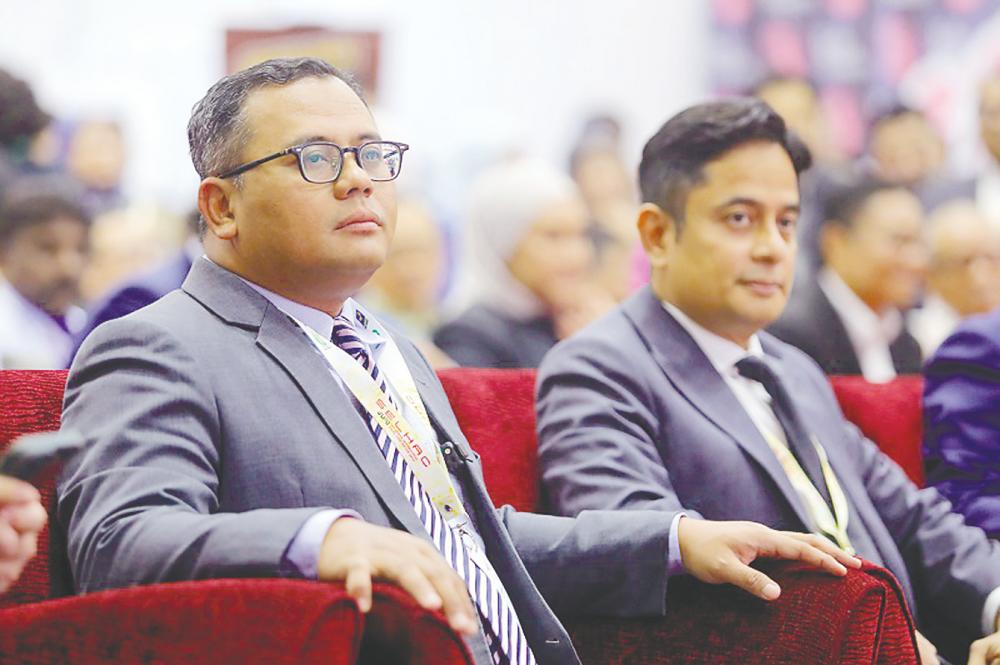KUALA LUMPUR: Halal certification in Malaysia is evolving into a prominent guarantee of high quality with global recognition, with Selangor leading the number of halal certificate holders.
Currently, there are 9,436 active halal certificate holders, with 3,104 of them based in Selangor. This means that 33% of active halal certificate holders come from Selangor.
Selangor Menteri Besar Datuk Seri Amirudin Shari said businesses with the Malaysian halal logo stamped in Selangor can leverage and elevate their position into a competitive advantage in both local and international markets.
He said that while consumers readily accept halal certificate holders’ products, they feel even more assured knowing that the purchases adhere to the highest possible quality and safety standards.
“With the increasing demand for halal products and services, we must accelerate our efforts to bring even more businesses into the fold. Increasing the number of halal-certified businesses will ensure that we remain competitive in the global market while creating jobs and contributing to the state’s economic growth,“ he told delegates at the Selangor International Halal Convention today.
He said the growth of the halal industry in Selangor has been impressive, and compliance with halal certification requirements will allow businesses to capitalise on market opportunities more effectively, particularly as Malaysia’s
halal sector is aiming to generate an export value of RM75.2 billion by 2030.
“Currently, the halal sector contributes 7.5% to the nation’s GDP (gross domestic product), and we are targeting an increase to 10.8% by 2030, underscoring our commitment to expanding the economic impact of the halal industry. Last year, the Malaysia Investment Development Authority (Mida) reported that Malaysia’s exports of halal products exceeded RM54 billion, and this is slated to grow even further this year,“ Amirudin said.
In developing the halal industry further, Amirudin said, the industry must build on Selangor’s comparative advantage, which possesses research organisations and universities that can provide strategic input and discussion.
“We also have a critical mass of manufacturers in industrial zones up and down Selangor, and a large pool of skilled workforce, along with most universities in Malaysia, primed to reap the rewards of continuous innovation and technological adaptation.
“Finally, we have to align our goals to tap into the potential of our small and medium enterprises, which represent the backbone of Selangor’s economy and the backbone of the halal industry in Malaysia,“ he said.
Amirudin called on the halal sector to openly discuss programmes and possible collaborations with Halal International Selangor (HIS Toyyiba), saying that the state’s strategic focus on the halal industry is supported by its robust infrastructure.
These include two key Halmas industrial parks that are designated to support the growth of the halal sector in Malaysia, namely Selangor Halal Hub in Pulau Indah and PKFZ National Halal Park in Port Klang.
“Beyond the food and beverages sector, halal pharmaceuticals are slated to grow from about RM16 billion last year to RM20 billion in 2025.
“Besides the hardware, we also need to pay attention to improving the software, in raising awareness among Muslims and non-Muslims alike, as this will further increase interest in the halal economy. New potential is present in growing niche areas like halal ingredients, halal organics, and even halal cosmetics,“ Amirudin said.
In his welcoming speech, Selangor executive councillor for Islamic affairs and innovation culture Dr Fahmi Ngah said by leveraging technology and innovation, the state aims to enhance the halal certification efficiency, ensure goods traceability and provide comprehensive support across the supply chain to position Selangor as a leading global hub for halal business and expertise.
“HIS Toyyiba is also enhancing the efficiency of halal certification by introducing the Certificate Readiness Assessment (CRA) system. With over 9,000 current halal certificate holders currently, the CRA will help the Selangor government expedite halal certification for more companies in the state,“ he said.









